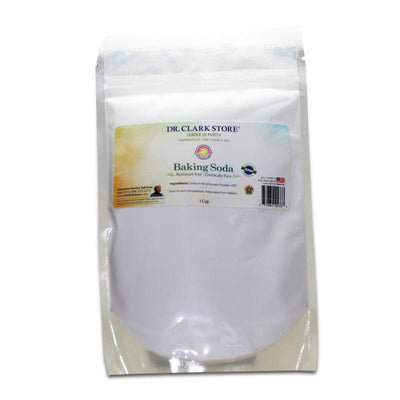7 Parasites You Get From Your Pets

We love our pets.
They are companions. They are family members. They are therapy. Sometimes they are social media stars making income for the household!
Whatever function they serve, pets give unconditional love, but they can also make us sick without even knowing it.
Most of us know that the more people living under the same roof, the greater the chance of passing illnesses to each other. The same goes for animals living under the same roof, as well as humans and animals living together under the same roof.
What Diseases Can Humans Get From Animals?
Diseases transmitted from animals to humans are called zoonotic diseases. They typically happen in the following ways:
Direct contact: Coming into contact with saliva, blood, urine, mucus, feces or other fluids from an infected animal.
Indirect contact: Coming into contact with an area, object, or surface that has been contaminated with infected animal fluids or feces.
Foodborne: Ingesting animal-derived foods that are infected with a pathogen, or plant-based foods that came into contact with soil or water that was contaminated by an infected animal.
Waterborne: Drinking or coming into contact with water that has been contaminated by an infected animal.
Zoonotic diseases can be caused by bacteria, viruses, fungi, and parasitic worms or protozoa. Some of the commonly transmitted pathogens from animals to humans in the US include influenza A viruses that cause avian flu and swine flu, Salmonella bacteria, rabies virus, Lyme disease bacteria, and West Nile virus.
You may think your risk is minimal if you have little contact with wild animals and farm animals. But domesticated dogs and cats can make you sick too.
Health experts warn against letting your dog or cat lick you on the mouth. While this act is a sign of affection for many pet owners, it gives others the heebie jeebies thinking about the microbial world hiding in pet saliva.
According to orthodontist Dr. Khaled Kasem, letting your dog kiss you on the mouth could lead to the transfer of bacteria and parasites that can make you ill.
Dogs and cats aren’t particularly hygienic. They spend a great deal of time grooming (by licking) themselves or each other and exploring new food opportunities anywhere within reach. And how often do they get their teeth brushed?
Dr. Kasem states, “Not only can human infection with pet parasites cause a wealth of intestinal diseases, but it also transfers damaging bacteria to your teeth and gums, causing gum disease.”
How Do Pets Become Infected With Parasites In The First Place?
Remember that even domesticated dogs and cats can revert back to their natural instincts. Drinking from unsanitary water sources, eating other dead animals raw, and even eating animal excrement is not off the table. These types of behavior are what can lead to the transfer of parasites and harmful bacteria to humans.
If you take your dog to a dog park, this place of unhindered joy for your pooch could be a veritable petri dish of parasites waiting for a new host.
A study published in 2020 looked at samples from over 3000 dogs visiting 288 off-leash dog parks across the US. A whopping 85% of the samples analyzed tested positive for at least one intestinal parasite. The most common species detected were Giardia (a protozoan), Ancylostoma caninum (a type of hookworm), and Trichuris vulpis (a type of whipworm). Nearly 70% of the dog owners from the study confirmed their pet was already on heartworm medication.
Parasitic eggs shed through feces contaminate the ground so ultimately dog parks become sites of initial infection and reinfection for dogs and their humans.
Dogs are not the only domesticated pets that can make you sick. Cat owners have cause to worry too.
If you have an outdoor cat, they can easily pick up a parasitic infection from contaminated food and water sources too. More about this further down the article.
7 Parasites You Get From Your Pets
1) Roundworm
Roundworm infections are common in dogs. Puppies are especially vulnerable because roundworms can be passed from their mother while still in utero or through mother’s milk.
Roundworms inhabit a dog’s intestines and roundworm eggs are passed through dog feces. Humans can become infected if they ingest the eggs through contaminated environment sources such as water or through improper hand washing after coming into contact with dog feces. Roundworm eggs are quite hardy. Some can survive exposure to direct sunlight and freezing temperatures for months at a time in soil. The most common places that are potential contamination sites are parks, sandboxes, playgrounds, and gardens.
The most common type of intestinal parasite passed from pets to humans is from the roundworm family. In humans, roundworm eggs hatch in the intestinal wall and then enter the bloodstream. Some people may not experience any symptoms, while others may feel the effects of migrating larva. Visceral toxocariasis is when the larvae travel to the liver, lungs, or central nervous system and can cause fever, cough, enlarged liver, or pneumonia.
Roundworm larvae also travel to the eye, a disease called ocular toxocariasis. This causes inflammation and scarring on the retina may lead to irreversible vision loss.
Cats can spread roundworm infection to humans too, though it’s less common than infections passed from dogs.
2) Whipworm
Whipworms inhabit the large intestine of the host. Like roundworms, whipworm eggs are shed through animal feces. The eggs are quite resistant to dryness and heat, so they can remain on the ground for a long time.
If humans come into contact with infected feces or contaminated surfaces and don’t wash their hands thoroughly, the eggs can be ingested. Food harvested from contaminated ground can also be the mode of transmission if it is not properly washed or cooked before consumption.
People with minor whipworm infections may not experience any symptoms. More severe infections can result in painful bowel movements that contain mucus and blood. Heavily infected children may exhibit slow growth and impaired cognitive development.
3) Hookworm
Hookworms are intestinal parasites, but their main mode of entry into the human body is a bit different than other parasitic worms. One kind can be contracted through ingestion of larvae, however, hookworm infection is primarily done through direct skin contact with soil that is contaminated with hookworm larvae.
Hookworm eggs shed through animal feces can survive in sand or soil and eventually mature. When bare skin comes in contact with a contaminated site, hookworm larvae burrow under the skin, causing itching and skin irritation, and even abdominal pain and fatigue if the infection becomes severe in the intestinal tract.
4) Tapeworm
Tapeworm infections can be caused by ingesting food or water contaminated with tapeworm eggs or larvae. But if your dog or cat has fleas, this is another possible danger to you.
Fleas can serve as intermediate hosts for tapeworm larvae. Accidentally ingesting an infected flea is an open invitation to your small intestine where the worm can grow several feet long and live for many years!
Symptoms of tapeworm infection may not occur right away. Over time symptoms include weakness, nausea, loss of appetite, abdominal pain, diarrhea, poor nutrient absorption, and weight loss.
If tapeworm larvae migrate outside the intestinal tract, they can form cystic masses or lumps that cause organ or tissue damage. Symptoms of an invasive tapeworm infection include headaches, seizures, and other neurological problems.
5) Toxoplasma
Let’s get back to cats. Cats can harbor the protozoan parasite Toxoplasma gondii. The parasitic egg-like oocysts are released through cat feces. If the parasite passes to humans, it causes a condition called toxoplasmosis.
Research estimates that 30-50% of the world’s population has been infected with T. gondii.
Healthy people may not show signs of toxoplasmosis while others may develop flu-like symptoms.
People with impaired immune systems may experience more severe symptoms such as blurred vision, confusion, poor coordination, and seizures.
If left undetected and untreated, chronic effects of toxoplasmosis can include damage to the brain, eyes, and other organs.
If you're a cat owner, you probably know that pregnant women are urged to not empty litter boxes. That’s because babies born to mothers who have toxoplasmosis may develop serious complications such as seizures, enlarged liver and spleen, jaundice, and severe eye infections.
6) Giardia
Giardia is a single-celled organism, not a worm, but still poses a threat to humans. Like other parasites, the infection spreads from poor hygiene after handling infected animal feces or coming into contact with soil, food, or water sources that are contaminated with animal feces.
A giardiasis infection typically affects the digestive tract - diarrhea, gas, stomach pain, nausea, and vomiting. Less common symptoms include fever, itchy skin, hives, and swollen joints.
7) Scabies
Scabies, also known as the mange mites, is an infection caused by skin mites. Simply touching an animal with mange can cause the transfer of the parasite.
The mites burrow into the upper layer of skin. Common symptoms of scabies include itching and a pimple-like skin rash. However, the irritation tends to be short-lived since animal mites don’t thrive in human skin. Person-to-person transmission of the human itch mite is the more common and more problematic scabies infection to look out for.
How To Minimize The Transmission Of Parasites From Pets To Humans
If you’re a responsible pet owner, you’re probably already taking these steps to keep your pet and yourself healthy.
- Routine use of heartworm control medications are important to reduce environmental contamination.
- Use preventative flea and tick treatments on your pet.
- Quickly remove and properly dispose of all pet feces from the ground.
- Wear shoes to avoid skin contact with contaminated ground.
- Wash hands thoroughly after handling pet feces.
- Wash hands thoroughly before eating if you were recently petting your fur baby.
When in doubt, talk to your veterinarian about what parasite prevention and treatment methods your pet should be on because reducing your pet’s exposure to parasites also reduces your exposure.
This Is Why Pet Owners Should Do A Parasite Cleanse
Preventative measures are no guarantee that you or someone in your household won’t become infected with a parasite from your beloved pet.
That’s why Dr. Hulda Clark recommended that pet owners should perform a parasite cleanse and follow up with a weekly maintenance protocol. This becomes even more important if free-roaming pets, like cats and dogs, live indoors with humans.
Dr. Clark’s parasite cleanse features three potent herbs that hit all stages of the parasite life cycle - cloves, wormwood, and black walnut hull. This is what makes the cleanse highly effective against intestinal parasites.
Dr. Clark’s parasite cleanse can even be modified for children in the household. Small children who often put objects or their hands in their mouths are at high risk of accidentally ingesting microscopic parasite eggs.
Is There A Parasite Cleanse For Pets?
Good news! Dr. Clark’s parasite cleanse can be modified for your cat or dog too. The same cloves, wormwood, and black walnut hull supplements that combine to eradicate each parasitic life stage in the human body work the same way in cats and dogs.
Even if you’re not a pet owner you may still be susceptible to the diseases they can pass on to humans. You don’t even need to be in the presence of one to be infected.
Any space where an animal does its business is a potential contamination site. Lawns, grassy parks, sand boxes, and beaches that have come into contact with an infected deposit can contain parasitic eggs even after said deposit has been removed.
Animals are just one way you can be infected with a parasite. Head over here to read about six more ways we get parasites.




